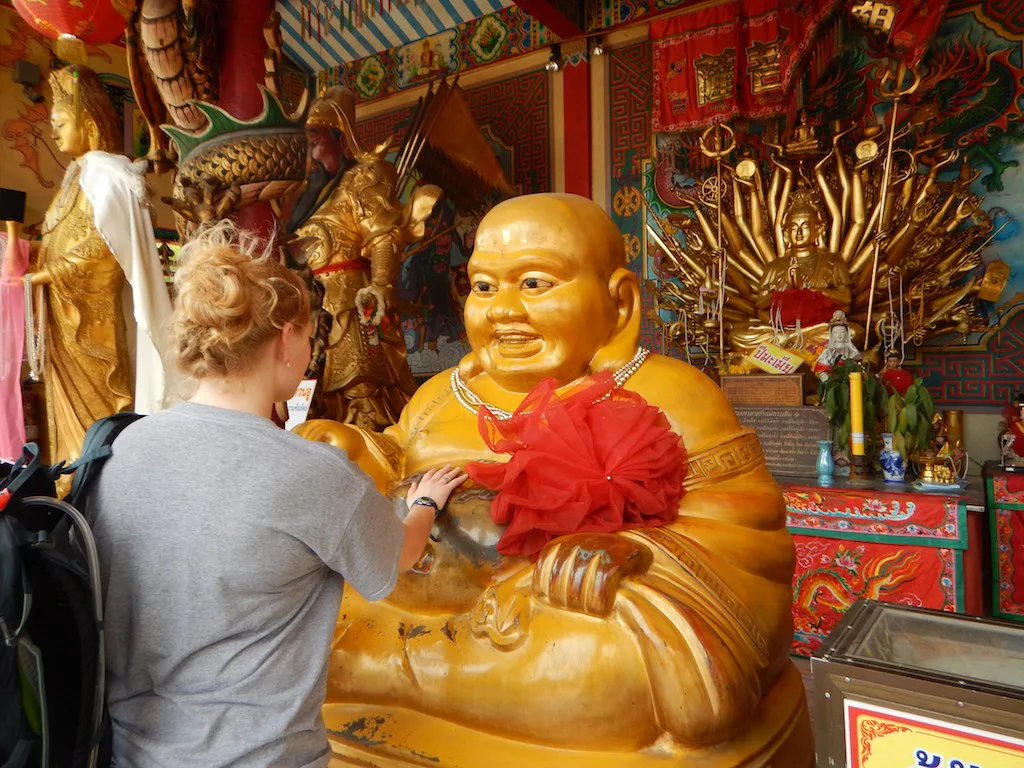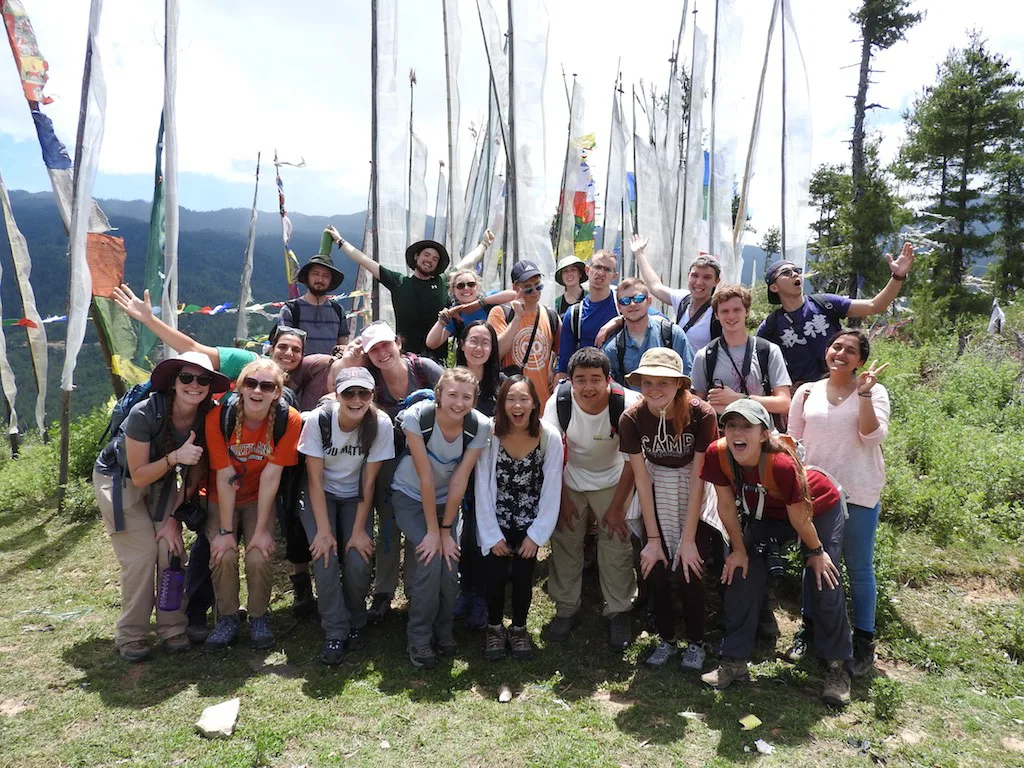The Intersection of Nature and Culture
After an unexpected layover in Thailand, 22 of the most positive and passionate students landed in beautiful Bhutan. Although we were facing jet lag, we all ran out of the plane and literally danced. It was a moment of pure joy and appreciation that I don’t think any of us will ever forget. As soon as we arrived, this amazing country became our classroom.

So far, we have been here for about a week in the capital, Thimphu. We have learned from our Bhutanese teachers how to properly respect the people and the place we are in, while Matt and Lindsay have taught us about development, conservation, and the importance of this biodiversity hotspot. During this time, we also got to purchase the traditional dress. In Bhutan, women traditionally wear a Kira while men will wear a Gho. We even had the opportunity to wear them at two guest lectures from the GNH Center and the director of UWICE, our partnered institution! Dr. Nawang Norbu inspired us all by discussing research UWICE is doing in the field of biodiversity conservation and and the challenges of development in Bhutan. At one point in his lecture, one of our students asked what successes the institution has had, and Dr. Norbu responded with a quote that stayed with all of us: “Success is hard to describe, but I believe losing is important. Losing is what makes us humble, which in turn makes us strong.” This quote stuck with us all through out the lecture, and we will continue to carry that with us during our time here. We have also had the chance to have two field lectures as well, and explored the differences and similarities between culture and nature. We are quickly learning that these two may be more intertwined then we previously thought.

Our time in Bhutan has also included getting to meet locals and shop in the community. We have seen farmer’s markets, handicraft markets, and even a paper mill! All of these experiences have only been made more special by the locals who live here. Everyone is filled with such kindness and joy that I have never seen before. When we attended a summer festival, one of our students left a bag and locals running a carnival game chased after us to ensure they got it back. We have played with children, and even tried our hand at Dzongkha – the national language of Bhutan. Instead of hello, we now always refer to the Bhutanese greeting Kuzuzangpo la. In Bhutan, la goes after a phrase as a form of respect. Before we came to Bhutan, Kencho gave us a lesson on spelling and speaking the language, and patiently taught us a few simple sayings. One of our biggest questions was how to say thank you, however, in Bhutan, kindness does not necessarily merit thanks. Instead, we are understanding that in Bhutanese culture, everyone should be treated with kindness and respect. They are selfless people who have welcomed us into their home and are so willing to teach us about their country.

We are all learning every day the true beauty that comes with these people inside and out and we all hope to use these practices with each other as well. Even after two weeks, we all feel that we have known each other our entire lives and support one another when we are struggling with an assignment or we’re on a hard hiking trail. Hiking in the Himalayas, however, cannot even be described with words. It is definitely one of the most breathtaking things, both in the ability to catch your breath and the pure beauty! Together, we are attempting to practice Bhutanese culture and continue to allow this country to fill us with wonder. There are more than a few times in a day where someone will look up and say, “We are the luckiest people in the world to get to be here.” I could not agree more.

Related Posts

Camila Rojas: Alumni Spotlight⭐

